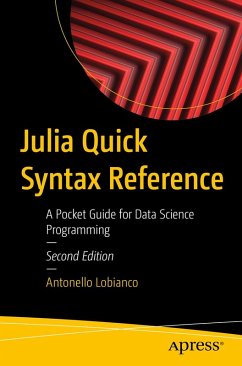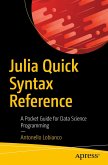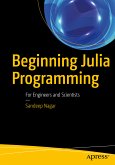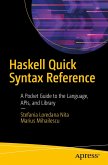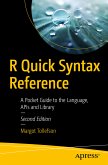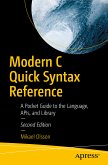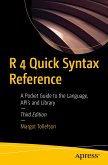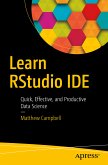This book provides an introduction that reveals basic Julia structures and syntax; discusses data types, control flow, functions, input/output, exceptions, metaprogramming, performance, and more. Additionally, you'll learn to interface Julia with other programming languages such as R for statistics or Python. At a more applied level, you will learn how to use Julia packages for data analysis, numerical optimization, symbolic computation, and machine learning, and how to present your results in dynamic documents.
The Second Edition delves deeper into modules, environments, and parallelism in Julia. It covers random numbers, reproducibility in stochastic computations, and adds a section on probabilistic analysis. Finally, it provides forward-thinking introductions to AI and machine learning workflows using BetaML, including regression, classification, clustering, and more, with practical exercises and solutions for self-learners.
What You Will Learn
- Work with Julia types and the different containers for rapid development
- Use vectorized, classical loop-based code, logical operators, and blocks
- Explore Julia functions: arguments, return values, polymorphism, parameters, anonymous functions, and broadcasts
- Build custom structures in Julia
- Use C/C++, Python or R libraries in Julia and embed Julia in other code.
- Optimize performance with GPU programming, profiling and more.
- Manage, prepare, analyse and visualise your data with DataFrames and Plots
- Implement complete ML workflows with BetaML, from data coding to model evaluation, and more.
Who This Book Is For
Experienced programmers who are new to Julia, as well as data scientists who want to improve their analysis or try out machine learning algorithms with Julia.
Dieser Download kann aus rechtlichen Gründen nur mit Rechnungsadresse in A, B, BG, CY, CZ, D, DK, EW, E, FIN, F, GR, HR, H, IRL, I, LT, L, LR, M, NL, PL, P, R, S, SLO, SK ausgeliefert werden.
Hinweis: Dieser Artikel kann nur an eine deutsche Lieferadresse ausgeliefert werden.

